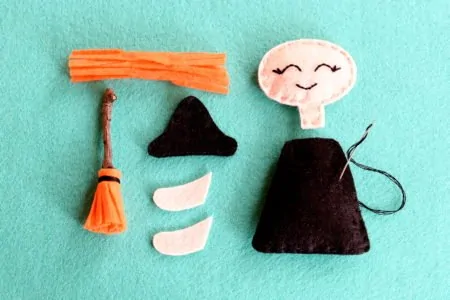Names that mean purple are super fashionable. There are loads of unique and interesting options for the taking. From amethyst gemstones to lavender flowers, the best of nature’s offerings often come in shades of purple. Throughout different cultures, this rich color is deeply connected to spiritualism, royalty, and power.
Let us guide you in your search for meaning and symbolism. We’ve planted a vineyard of violet names you haven’t seen before to inspire you. So grab a basket and take a stroll as you pick the perfect purple name for your baby boy or girl.
50 Cute Purple Names for Boys and Girls
Paint a picture to last a lifetime with these 50 pretty names that mean purple.
Amethyst
Amethyst comes from Amethystos, which consists of Greek elements, “a” meaning “not” and “methystos” meaning “intoxicated.” Amethyst is a gemstone name that exudes refinement, but its usage is historically uncommon. Pop culture has thrust this glistening purple quartz into the limelight. Characters called Amethyst have graced screens in anime like Houseki no Kuni and cartoons like Steven Universe.
- Origin: Greek
- Meaning: Not intoxicated, purple semi-precious quartz
- Pronunciation: A-muh-thist, A-muh-thust
- Variations: Amethystos
- Namesakes: Amethyst Amelia Kelly, stage name Iggy Azalea, an Australian model and rapper.
- Popularity: Amethyst ranked 1,192nd in the U.S. in 2020 from 1,785th in 2010.
Aster
Aster is a primarily violet perennial flower, a favorite of monarch butterflies. They get their name from the shape of the flower head, which resembles a star. In Greek mythology, Astrea, the “star-maiden,” once cried for lack of stars in the sky. Her tears fell to Earth, becoming aster flowers. Catch a falling star with this celestial purple pick.
- Origin: Greek
- Meaning: Star
- Pronunciation: A-stuh, A-ster
- Variations: Astra
- Namesakes: Aster Aweke, an Ethiopian Amharic language singer. Aster Janssens, a Belgian women’s football player. Aster Yohannes, an Eritrean independence activist.
- Popularity: Aster came 40th in Eritrea in 2014.
Bellflower
Bellflower is an English form of the rare French surname Bellefleur. It refers to a deep purple-blue bell-shaped flower with the scientific name campanula, Latin for “little bell.” Unlike other girl names that mean purple, Bellflower gives you the additional benefit of being an obvious floral choice. You can shorten it to Bell, Bella, or even the Bambiesque Flower.
- Origin: English
- Meaning: Beautiful flower
- Pronunciation: BEL-flou-uh, BEL-flou-ur
- Variations: Bellefleur
- Popularity: Bellflower is extremely rare, with about three bearers worldwide.
Bíborka
Bíborka stems from the Hungarian “bíbor,” meaning “purple.” This Hungarian word is not heard often in the west, if at all. Its usage is limited to Romania and Hungary, where it remains fairly popular. Bíborka lets you get experimental by looking outside the usual options. Playful nicknames include Bíbí and Bíbo.
- Origin: Hungarian
- Meaning: Purple
- Pronunciation: BEE-bor-kuh, BEE-baw-kuh
- Namesakes: Bíborka Bocskor, a Romanian-born Hungarian singer-songwriter and lead vocalist for the band Magashegyi Underground.
- Popularity: Bíborka hit the Hungarian charts in 2011 and ranked 78th in 2021.
Bora
In Korean and Albanian, Bora is feminine and means “purple” and “snow,” respectively. In Turkish, Bora is masculine and means “strong wind” or “squall.” Bora is a great option for parents who appreciate variety. And with only four letters, it’s easy to write and even remember. Try the sturdy-sounding Bora for a tough little boy or girl.
- Origin: Korean, Turkish, Albanian
- Meaning: Purple, squall, snow
- Pronunciation: BOH-RA, POH-RA
- Variations: Bo-ra
- Namesakes: Bora Yoon, a Korean-American composer, and musician. Bora Aksu, a Turkish fashion designer, based in London. Bora Shin, a South Korean comedian, singer, and actress.
- Popularity: Bora is most prevalent in Cambodia, while Bo-ra is mostly popular in Canada and Korea.
Calfuray
Calfuray is certainly unique. From Hispanicized Mapuche, its elements are “kallfü” meaning “purple-blue,” and “rayen” meaning “flower.” Calfuray is a purple floral epithet allowing parents to celebrate their baby’s heritage. For others, it could be a respectful nod to a culture they appreciate. Why not be one of the rare few to use Calfuray for your little flower?
- Origin: Native American
- Meaning: Violet flower, purple flower
- Pronunciation: KAL-few-ray, KAWL-few-ray
- Popularity: Calfuray does not show up on popularity charts.
Clematis
Clematis is from the Greek word “clēmatís” meaning “climbing plant,” which itself stems from “klema” meaning “twig,” “tendril,” or “branch.” The plant genus Clematis comprises primarily purple and blue flowers of the buttercup family — mainly originating in China and Japan. With its unusual look and feel, Clematis might be better relegated to middle name status.
- Origin: English, Greek
- Meaning: Vine branch, climbing plant
- Pronunciation: KLEH-muh-tiss
- Popularity: Clematis is most popular in the U.S. but is borne by only 33 people worldwide.
Dhumra
Dhumra is of Hindu Sanskrit origin and signifies the grayish-purple color of smoke. In Hindu teachings, Dhumra was an attendant of Skanda, a war deity in the court of Indra. It’s extremely rare, with just a handful of bearers limited to India. If you’re searching for unique boy names that mean purple, put Dhumra on your list.
- Origin: Indian
- Meaning: Smoky, purple, gray
- Pronunciation: DUM-ruh
- Popularity: Dhumra is borne by 77 people from India.
Fialová
Fancy and feminine, Fialová is one of the rarest girl names that mean purple on our list. This Czech option seems to be a popular last name for actresses, with bearers including Anna Fialová, Zuzana Fialová, and Květa Fialová. If you’re having a boy and want something similar, Fiala is the masculine variant.
- Origin: Czech, Slovak
- Meaning: Violet
- Pronunciation: fee-a-LOH-va
- Variations: Fiala
- Namesakes: Kristina Fialová, a Czech classical violinist. Zuzana Fialová, a Slovak actress.
- Popularity: Fialová belongs to 7 people in Slovakia and is a popular surname in Czechia, ranking 30th in 2014.
Fuchsia
The Fuchsia is a genus of flowering plants named after the German botanist Leonhart Fuchs, whose surname means “fox.” This flower has bright red sepals and purple petals. Most people know fuchsia as a striking pinkish-purple color, making this moniker stand out in more ways than one. Why should celebrities have all the fun with the trendy Fuchsia?
- Origin: English, German
- Meaning: Fuchsia (color), fox
- Pronunciation: FYOO-shuh
- Variations: Fuschia
- Namesakes: Fuchsia Dunlop, an English writer, and cook. Fuschia Sumner, an English actress, and director and the daughter of Sting.
- Popularity: Fuchsia is most common in the U.S. and Jamaica but doesn’t crack the top 1,000 names.
Hadley
Hadley comes from the Old English elements “hǣþ” meaning “heath” or “heather,” and “leah,” meaning “meadow,” “woodland,” or “clearing.” In England and Wales, Hadley is more popular for boys, ranking 461st in 2021. Meanwhile, Hadlee is also fairly popular in the U.S. for girls at 747th in 2021. Overall, everyone can agree that Hadley is a perfect purple choice.
- Origin: English
- Meaning: Heather field, heather meadow
- Pronunciation: HAD-lee
- Variations: Hadlee
- Namesakes: Hadley Freeman, an American-British journalist based in London. Hadley Wickham, a New Zealand statistician, professor, and Chief Scientist at RStudio Inc.
- Popularity: In 2021, Hadley ranked 112th for girls in the U.S. and last ranked in 1909 for boys at 777th.
Heather
Heather stems from the word “heath,” which comes from Old English “hather.” This classic epithet conjures scenes of European moors carpeted in light purple. It may have lost some traction in places like Scotland and Canada, but Heather will always be evergreen, even if it doesn’t make some charts.
- Origin: English
- Meaning: Of the heath
- Pronunciation: HEH-thur, HEH-thuh
- Namesakes: Heather Grace Angel, a British actress known for voicing Mrs. Darling in Peter Pan. Heather Marks, a Canadian model. Heather Headley, a Trinidadian singer, record producer, and actress.
- Popularity: Heather was 957th in England and Wales in 2021 and last ranked in the U.S. at 977th in 2016.
Heliotrope
Heliotrope comprises Greek “hḗlios,” meaning “sun,” and “trépein,” meaning “to turn,” and refers to a vivid purple flowering plant. This name came about due to the belief and myth that heliotrope flowers always turned to face the sun. Besides the plant, Heliotrope is a pink-purple color inspired by the flower and a mineral aggregate called bloodstone.
- Origin: Greek
- Meaning: Turn to the sun
- Pronunciation: HEE-lee-uh-trohp
- Popularity: Heliotrope is extremely rare, with only seven bearers worldwide.
Hyacinth
Originally from the Greek, Hyaʹkinthos, Hyacinth refers to the fragrant perennial flower and a deep blue semi-precious stone — possibly a sapphire. In Greek myth, Hyacinthus was a youth of astounding beauty, beloved by the god Apollo. When he died, a flower grew from the tears Apollo shed. To this day, Hyacinth is equated with the tragic tale.
- Origin: Greek, English
- Meaning: Blue/purple flower
- Pronunciation: HEYE-uh-sinth, HEYE-uh-snth
- Variations: Hyacinthe, Hyacintha, Hyacinthia, Hyazinth
- Namesakes: Saint Hyacinth, a Polish Dominican priest, and missionary. Hyacinth Morgan, a Labour Party politician in the United Kingdom of Irish descent. Hyacinth Tungutalum, an Australian politician.
- Popularity: Hyacinth last ranked in the U.S. at 1,716th in 1910.
Indigo
Although Indigo is gender-neutral, it’s more popular for girls. Its etymology stems from the Greek “Indikon,” meaning “from India.” This referred to an Indian dye, which made its way to the Greeks and Romans, who prized it as a luxury item. The obvious nickname here would be Indie, though again, it’s probably more suited to girls.
- Origin: Greek
- Meaning: (Purplish-blue dye) from India
- Pronunciation: IN-duh-goh, IN-dee-goh
- Namesakes: Indigo Sanara Phillips, daughter of Filipino-American actor and director Lou Diamond Phillips.
- Popularity: Indigo ranked 438th in England and Wales and 906th in the U.S. in 2021.
Iolanthe
Iolanthe comes from the Greek elements “iole” from “ἴοn” meaning “violet,” and “anthos” meaning “flower.” The 1882 comic opera Iolanthe, or The Peer and the Peri, by Sullivan and Gilbert helped popularize it. The titular character was a fairy banished from fairyland for marrying a mortal. Iolanthe is the perfect balance of flower and fae for your newborn princess.
- Origin: Greek
- Meaning: Violet flower
- Pronunciation: EYE-oh-lan-thee
- Variations: Iolanda, Jolanta, Yolanda, Yolande
- Popularity: Iolanthe has about 130 bearers globally and is most popular in South Africa and Nauru.
Ione
Ione is from the ancient Greek word “ἴon” meaning “violet.” For parents who like Iolanthe but want a shorter, simpler option, Ione is the ticket. It sounds like a fairytale princess or badass sci-fi chic. For all its elegance and beauty, Ione has become antiquated in the U.S. We think it’s time to put Ione back on the throne.
- Origin: Greek
- Meaning: Violet (color)
- Pronunciation: EYE-oh-nee
- Variations: Aeone
- Namesakes: Ione Skye Lee, née Leitch, a British-American actress. Ione Jean Christensen, née Cameron, a Canadian senator. Ione Serrano, a Spanish synchronized swimmer.
- Popularity: Ione last ranked in 1942 at 938th in the U.S. and is most prevalent in Brazil and Barbados.
Khuzama
Khuzama is popular in Islamic communities despite not being of Quranic origin. This is possible due to its neutral and soft meaning. Go with Khuzama for a cool exotic pick that is still primarily undiscovered worldwide.
- Origin: Arabic
- Meaning: Lavender
- Pronunciation: KOO-zoo-muh, KOO-zuh-muh
- Popularity: Khuzama has about 334 bearers worldwide and is most popular in Syria and Lebanon.
Kikyo
Kikyo can have many meanings based on the kanji used, but it usually refers to the Japanese or Chinese bellflower. This bright purple blossom symbolizes unchanging love, obedience, and honesty. Fittingly, the shrine priestess in the Inuyasha anime is called Kikyo. The flame of love for her sweetheart endured despite being apart for centuries.
- Origin: Japanese
- Meaning: Japanese bellflower, apricot season, spring
- Pronunciation: KEE-kyoh
- Variations: Kikyō, Kikyou
- Namesakes: Kikyo Nakamura (ring name), an American female professional wrestler.
- Popularity: Kikyo is very rare as it is borne by about 602 people worldwide.
Kovidar
Kovidar is of Indian Sanskrit origin and refers to the purple orchid tree, also known as the purple bauhinia. This plant produces flowers with five bright pink petals, so the purple in this one is all in the meaning. Kovidar is one of the few exclusive boy names that mean purple.
- Origin: Indian
- Meaning: Purple orchid tree
- Pronunciation: KOH-vih-dar
- Variations: Kovidara
- Popularity: Kovidar doesn’t show up on popularity charts.
Lavender
Lavender possibly comes from the Latin “lividus,” meaning “blueish,” or Old French “lavandièrer” meaning “launderer” or “lavandière,” meaning “washerwoman.” Lavender was first recorded as an English color term in 1705 and is usually agreed to be a medium purple tone. Though the lavender based on the flower is darker than the shade for the web, both are equally pretty.
- Origin: Anglo-Saxon, Latin
- Meaning: Lavender flower, blueish
- Pronunciation: LA-vun-der, LA-vun-duh
- Popularity: Lavender was 1,398th in the U.S. in 2020, making it somewhat popular.
Lila
Lila is a darling pick and comes with many lovely meanings. In Hindi, it means “play” or “amusement,” but in German, it simply means “purple.” This makes Lila the most vivacious purple name on our list. Hot on worldwide charts, Lila will satisfy parents with a preference for more popular picks.
- Origin: German, Arabic, Indian
- Meaning: Purple, night, amusement
- Pronunciation: LEE-luh, LEYE-luh
- Variations: Lyla
- Namesakes: Ana Lila Downs, a Mexican singer and songwriter. Lila Tretikov, a Russian-American engineer and manager. Lila Grace Rose, an American anti-abortion activist.
- Popularity: Lila ranked 99th in Poland, 71st in France, and 223rd in the U.S. in 2021.
Lilac
Lilac is an Anglicized version of the Arabic “laylak” and Persian “nylac” meaning “blue.” While lilacs generally symbolize first love and spring, those on the violet end of the color spectrum also symbolize spirituality. Blue lilacs are said to symbolize peace and happiness. You can grant your spring blossom eternal joy with the gentle-sounding Lilac.
- Origin: Persian, Arabic, English
- Meaning: Bluish, lilac flower
- Pronunciation: LEYE-lak, LEYE-luhk
- Variations: Lilach
- Namesakes: Tallulah Lilac Morgan, daughter of the English actress Jessie Wallace. Lilac Emery-Haynes, an actress known for True Blood and the daughter of British actor Stephen Moyer.
- Popularity: Lilac is most popular in the U.S. but doesn’t make the top 1,000 names.
Magenta
Magenta comes from the vivid pinkish-purple color and feels very new-age. The dye first used to make magenta was discovered about a year after the Battle of Magenta, named after the nearby town of Magenta in northern Italy. In nature, magenta is seen in animals like flamingos and dragonflies, sea fish and corals, and more abundantly in flowers.
- Origin: Italian
- Meaning: Purplish-red color
- Pronunciation: muh-JEN-tuh
- Namesakes: Magenta Devine, born Kim Taylor, a British TV, journalist, and music promoter. Magenta Baribeau, a Canadian filmmaker.
- Popularity: Magenta is most common in the U.S. and Liechtenstein but doesn’t rank in the top 1,000 names for either.
Mauve
Mauve comes from the Latin “malva,” meaning “mallow,” of which the petals range from pink or white to lilac or purple. In a strange coincidence, Mauve looks and sounds quite similar to Maeve. It gives this pastel epithet a dignified old-fashioned feel despite being relatively fresh on the baby naming scene.
- Origin: English, French, Latin
- Meaning: Purplish color, violet-colored, mallow
- Pronunciation: MOHV, MAWV
- Popularity: Mauve has over 100 bearers worldwide and is most common in France and Papua New Guinea.
Mazarine
Mazarine refers to a dark purplish blue that falls between hyacinth and sapphire. Unlike many floral purple names, the Mazarine Blue associates it with butterflies. Still, its usage is relatively uncommon. Despite falling out of favor during the mid-90s in France, it manages to hold out in DR Congo. We think it’s worth putting Mazarine on your own list.
- Origin: French
- Meaning: Deep purple-blue color
- Pronunciation: ma-zah-REEN
- Variations: Mazarin
- Namesakes: Mazarine Marie Pingeot, a French writer, journalist, and professor.
- Popularity: In 1996, Mazarine ranked 471st in France but hasn’t appeared since.
Morado
Morado feels like the beginnings of a young matador. It can be used for boys or girls since it’s a transferred Spanish surname meaning “purple,” though admittedly, it rings masculine. Spanish class will be one word easier for your little Morado, reinforcing its straightforward, vibrant meaning. Morado scores high on our list of names that mean violet.
- Origin: Spanish
- Meaning: Purple, deep violet
- Pronunciation: maw-RA-doh
- Namesakes: José Chávez Morado, a Mexican artist.
- Popularity: Morado is borne by about 105 people globally and is most prevalent in Benin and Aruba.
Murasaki
Murasaki is Japanese for purple, referencing the purple gromwell plant. It comes from a combination of the kanji for “mura,” which reads as “group” or “cluster,” and the kanji “saki” as “bloom.” Murasaki is more commonly a surname, but it can also be used for girls. A lovely nickname would be Saki, as it still holds meaning on its own.
- Origin: Japanese
- Meaning: Purple
- Pronunciation: moo-RA-sa-kee
- Namesakes: Murasaki Shikibu, a Japanese Heian era novelist, poet, and lady-in-waiting at the Imperial court. Murasaki Fujima, a Japanese dancer and film actress.
- Popularity: Murasaki is most popular in Japan, with 39 bearers globally.
Petunia
The Petunia is a genus of South American flowering plants that primarily comes in shades of purple, pink, and red. It comes from a French epithet that used the Native American Tupi word “petun” meaning “tobacco,” Petunia’s origin and etymology are unique. A Petunia’s fragrance warded off monsters and spirits in Mayan and Incan myths. Old-school Petunia is feistier than expected.
- Origin: Native American, French
- Meaning: Tobacco, funnel-shaped flower
- Pronunciation: puu-TOO-nyuh
- Variations: Petúnia
- Popularity: Petunia is most popular in South Africa, where it falls shy of the top 1,000 names.
Phoenix
Phoenix is inspired by a mythical crimson bird that burst into flame upon death and rose from its ashen pyre. The word comes from the Greek “phoinīx,” supposedly meaning “griffin.” More likely, it means “the Phoenician bird” or “purplish-red bird,” stemming from a root meaning “those working with red dyes.” If you like Phoenix, try the nicknames Fee Fee, Nix, or Nicky.
- Origin: Greek
- Meaning: Dark purplish red, crimson
- Pronunciation: FEE-nikss
- Namesakes: Phoenix Arn-Horn, a Canadian musician. Phoenix List, an American TV actor known for his role in American Viral. Phoenix Anderson, an American model.
- Popularity: In 2021, Phoenix ranked 248th for boys and 308th for girls in the U.S.
Plum
Plum is from Middle English “ploume,” meaning “plum fruit” or “plum tree.” The word was borrowed from the Old High German word “pfruma” or “pfluma,” from the Latin “prunum.” Originally, Plum was a topographic or an occupational surname but has since become a sweet pick for little girls. The color plum symbolizes royalty and romance — perfect for your sweetheart on the way!
- Origin: English, German
- Meaning: Plum fruit
- Pronunciation: PLUHM
- Namesakes: Plum Johnson, a Canadian writer and publisher.
- Popularity: Plum is most popular in New Zealand and the U.S.
Porfirio
Porfirio probably derives from the Greek Porphyrios, Latinized as Porphyrius. Between the fifth- and sixth-centuries, Porphyrius was a celebrated Byzantine-Roman charioteer. His moniker came from a giant of Greek myth, Porphyrion, who waged war with the gods. It’s unclear how the word came to mean “purple dye” in Italian and Spanish, but it sounds super cool.
- Origin: Spanish, Italian
- Meaning: Purple dye
- Pronunciation: por-FEE-ree-oh
- Namesakes: Porfirio Salinas, a Mexican-American landscape artist. Porfirio López Meza, a Costa Rican professional football player. Porfirio Lobo Sosa, a Honduran politician and former president of Honduras.
- Popularity: Porfirio ranked 922nd in the U.S. for 1932 but is most prevalent in Mexico and Paraguay.
Roxo
Roxo is most popular in Portugal, where it calls home, but is overall super rare. Although similar in appearance to manly monikers like Rocko or Rosco(e), it sounds wildly different. Coming from the Latin “russus” or “russeus” meaning “reddish brown,” Roxo has clear roots. And girls’ parents don’t have to feel left out as there’s a feminine version — Roxa.
- Origin: Portuguese
- Meaning: Purple, violet
- Pronunciation: HOH-shoh
- Variations: Roxa
- Popularity: Roxo is very rare, with only 45 bearers globally.
Shigure
Shigure is a rare gem with fewer than 30 global carriers. According to the characters used, it can have many other meanings, which are all just as lovely. Some of these include “timely rain” or “seasonal rain.” Though there aren’t many examples of real-life namesakes, a famous fictional bearer is Shigure Sohma from the anime Fruits Basket.
- Origin: Japanese
- Meaning: Purple, sunset, late autumn drizzle
- Pronunciation: SHEE-goo-reh, SHEE-goo-ray
- Popularity: Shigure has 21 bearers worldwide and is most popular in Japan.
Shion
Shion has a sharp but soothing feel and means “aster.” Fittingly, it can also mean “beautiful sound,” with the “shi” kanji reading as “poem” and the “on” kanji as “sound.” Though it keeps the original pronunciation, Shion might sometimes be Anglicized as Sion. Try Shion if you’re looking for a more approachable Japanese option.
- Origin: Japanese
- Meaning: Purple, aster flower
- Pronunciation: SHEE-on
- Variations: Shi-on
- Namesakes: Shion Tsuji, a Japanese singer and songwriter. Shion Miura, an award-winning Japanese writer. Shion Miyawaki, a Japanese pop singer with the label Rhythm Zone.
- Popularity: Shion is most common in Japan and Guyana, but it doesn’t make the top 1,000 names there.
Shiryu
Purple dragon has to be the coolest purple name ever. With hardly any bearers worldwide, baby Shiryu has room to make his mark. The kanji can refer to other meanings, but they aren’t as notable. The popularity of this epic epithet is reinforced by fictional namesakes like Saint Seiya’s Dragon Shiryu and One Piece’s Shiryu of the Rain.
- Origin: Japanese
- Meaning: Purple dragon
- Pronunciation: SHEE-ryoo
- Variations: Shiryū, Shiryuu
- Namesakes: Shiryu Choun, a Japanese professional wrestler and freelancer. Shiryu Hayashi, a notable swordsman from the Edo period. Shiryu Fujiwara, a Japanese football player.
- Popularity: There are 21 bearers of Shiryu worldwide, and it is most popular in Japan and Singapore.
Shizuki
Although Shizuki is unisex, all its bearers in Japan are girls. Countless kanji pairings are possible, but you came for “murasaki” meaning “purple” and “tsuki” meaning “moon,” read together as “shizuki.” However, there are so many kanji readings for “ki” that there are too many to list. Some notable ones include “hollyhock,” “princess,” and “sunshine.” Shizuki has major potential.
- Origin: Japanese
- Meaning: Purple moon, quiet hope
- Pronunciation: SHEE-zoo-kee
- Popularity: Shizuki is most prevalent in Japan and Guam but is highly rare globally.
Sigal
Sigal means “violet” in Hebrew and is the modern Hebrew word for the violet flower. Though uncommon in the west, Sigal is popping up in Israel, with over 7,000 bearers worldwide. Sigal is simple and sweet. Many people Anglicize the spelling of Sigal based on preference, providing some gorgeous variations, such as Sygal and Cygalle.
- Origin: Hebrew
- Meaning: Violet, violet flower
- Pronunciation: SEE-gal
- Variations: Sigalit, Segahl
- Namesakes: Sigal Avin, or Segahl Avin, an American-Israeli stage and film writer, and director. Sigal Shachmon, an Israeli model, actress, and TV host. Sigal Bujman, an Israeli filmmaker based in the U.S.
- Popularity: Sigal is most popular in Israel, ranking in the top 1,000 for 2014.
Slate
Slate is a powerful but understated pick referring to a type of rock. As a first name, Slate has only about 200 bearers worldwide, but as a surname, it’s over 9,000! Dragon Ball Z memes aside, Slate isn’t an outright purple color but tends to fall somewhere in the ballpark of purplish-gray-green. Regardless, it’s definitely a head-turner.
- Origin: English
- Meaning: Grained gray-green rock, mottled purple-green rock
- Pronunciation: SLAYT
- Namesakes: Slate Holmgren, an American actor known for The Amazing Spider-Man 2.
- Popularity: Slate is most common in the Marshall Islands and the U.S. but doesn’t make the top 1,000 names.
Sugilite
In Steven Universe, Sugilite was a powerful gem created by fusing Amethyst and Garnet. Voiced by Nicki Minaj in her introductory episode, Sugilite was solidified in pop culture. The term Sugilite comes from the mineralogist who discovered it in 1944, Ken-ichi Sugi. Sugi means “cedar” in Japanese, and the suffix “lite” was added to complete the mineral name.
- Origin: English, Japanese
- Meaning: Cedar, a rare purple mineral
- Pronunciation: SOO-guu-leyet, SOO-jee-leyet
- Popularity: Sugilite doesn’t appear on popularity charts.
Sumire
Sumire is not to be passed up on this stunning list of violet names. If Japanese purple names are high on your list, gentle Sumire should make the top three. Sumire is often written with hiragana rather than kanji. It may include complex or highly uncommon kanji or colloquialisms making hiragana more accessible. Fortunately, English-speakers can just pick their favorite meaning.
- Origin: Japanese
- Meaning: Violet, purple flower, pure and lovely
- Pronunciation: SOO-mee-reh, SOO-mee-ray
- Namesakes: Sumire Matsubara, a Japanese actress, singer, and model. Sumire Haruno, a Japanese actress and former member of an all-female theater group. Sumire Kita, a Japanese rhythmic gymnast.
- Popularity: Sumire is most common in Japan but falls just short of the top 1,000 names there.
Tyrian
Game of Thrones has done wonders to re-establish Tyrian’s variant Tyrion as a regal epithet. It stems from the Latin Tyrianus, meaning “of Tyre,” probably derived from a Semitic word meaning “rock.” The city of Tyre was famous for producing a purple-red dye known as Tyrian purple or royal purple. Hence, Tyrian is a moniker befitting a little king.
- Origin: Latin, Semitic
- Meaning: From Tyre, Tyrian purple (dye)
- Pronunciation: tih-REE-un
- Variations: Tirian, Tyrion, Tyrien
- Popularity: Tyrian is most popular in the U.S. and belongs to 48 people worldwide.
Umeko
Ume originates from the obsolete Japanese word “mume,” meaning “plum.” Paired with the kanji “ko,” meaning “child,” it becomes Umeko, roughly translating to “plum child” or “apricot child.” This adorable choice is ideal for summer babies as this is around when the fruit of the Japanese plum tree ripens. Vintage or not, Umeko stays sweet all season.
- Origin: Japanese
- Meaning: Plum tree child, plum blossom child, apricot child
- Pronunciation: OO-MEH-koh, OO-MAY-ko
- Namesakes: Umeko Ando, an Ainu singer and mukkuri player. Umeko Tsuda, born Ume Tsuda, a Japanese educator and women’s education pioneer in the Meiji period.
- Popularity: Umeko ranked 369th in Japan in 2014.
Viola
Viola brings to mind both the slightly larger cousin of the violin and a genus of flowers in the violet family. We can’t stress enough how pretty and prim Viola is despite its long absence from the U.S. charts. Many Italian options tend to appear complex, but Viola is just so simple and accessible — and more mature than Violet.
- Origin: Latin, Italian
- Meaning: Purple, violet (flower)
- Pronunciation: vee-OH-luh, VEYE-oh-luh
- Variations: Wiola
- Namesakes: Viola Davis, an American actress. Viola Bauer, a German cross-country skier, and Olympic medalist. Viola Gillette, born Viola Pratt, an American contralto singer.
- Popularity: In 1908, Viola peaked in the U.S., and ranked 957th in 1972 before disappearing from the charts.
Violet
Violet started its comeback in the U.S. in 1998 and has been rising on the charts ever since. In 2021, Violet boomed in the English-speaking world. Beyond U.S. borders, it ranked 45th in England and Wales and 56th in New Zealand. Violet also provides lots of fun nicknames — from Letta and Vi to Vee-Vee and Lottie.
- Origin: English, Latin
- Meaning: Purple
- Pronunciation: VEYE-oh-let, VEYE-uh-lt
- Variations: Violette
- Namesakes: Violet Heming, an English stage and screen actress. Marion Violet Aitken, a British suffragette. Violet Affleck, an American socialite and daughter of Ben Affleck.
- Popularity: Violet is most popular in the U.S., ranking 35th in 2021.
Violeta
For a fancier version of Violet, look to Violeta. It’s most popular in Spanish-speaking nations but only appeared on Spain’s charts in 2021, ranking 93rd. In Spanish, you would more likely hear it pronounced with a soft “B” sound instead of a “V,” to the effect of “bee-oh-LEH-ta.” Get swept away by the exotic charm of Violeta.
- Origin: Spanish, Romanian, Latin
- Meaning: Purple, violet (flower)
- Pronunciation: vee-oh-LEH-ta, vee-oh-LEH-tuh
- Variations: Violetta, Viorica, Viorel
- Namesakes: Violeta Urmana, a Lithuanian opera singer. Violeta Parra, a Chilean composer, singer-songwriter, folklorist, and artist. Violeta Ayala, a Bolivian-Australian Quechua filmmaker and artist.
- Popularity: Violeta ranked 893rd in the U.S. and 48th in Chile in 2021.
Wisteria
Wisteria comes from a purple or lavender blossom named after the American physician and anatomist Caspar Wistar. In many cultures, wisterias symbolize a love that transcends death. Parents are familiar with such a strong affection for a child, and Wisteria is a fantastic show of that unconditional love. Plant a seed of everlasting love in your newborn’s heart with Wisteria.
- Origin: English
- Meaning: Wister’s flower
- Pronunciation: wiss-TEE-ree-uh
- Variations: Wysteria, Wistaria
- Popularity: Wisteria is most common in the U.S., with about 123 bearers worldwide.
Yolanda
Yolanda is a version of Iolanthe that departed from its roots enough to grow into its own flower. It last ranked in the U.S. in 2002 at 973rd and in England and Wales at 993rd in 2000. Despite declining popularity, Yolanda still has so much to give. Yola and Landa add even more youthful energy to this lively option.
- Origin: Spanish, Greek
- Meaning: Violet flower
- Pronunciation: yoh-LAN-da, yoh-LAAN-duh, yuh-LAN-duh
- Variations: Yolande, Jolanda
- Namesakes: Yolanda Hadid, a Dutch-born American TV personality and model. Yolanda Andrade, a Mexican actress, and TV presenter. Yolanda Yvette Adams, an American gospel singer.
- Popularity: Yolanda ranked 339th in Spain for 2010 and is most common in Mexico and Puerto Rico.
Yukari
Yukari is as cute as they come. When written with the character “紫” or “murasaki,” it means “purple.” And as a purple name bonus, it can also refer to the plum blossom. There are various other kanji combinations, including one which renders Yukari as “yu” meaning “reason” or “cause,” “ka” meaning “fragrance,” and “ri” meaning “village.” Definitely go with Yukari.
- Origin: Japanese
- Meaning: Affinity, purple, Japanese/Chinese plum blossom
- Pronunciation: YOO-kah-ree
- Namesakes: Yukari Miyake, a Japanese Maritime Self-Defense Force petty officer, and band vocalist. Yukari Nakano, an award-winning Japanese figure skater. Yukari Yoshihara, a Japanese professional Go player.
- Popularity: Yukari is most common in Japan, ranking in the top 1,000 in 2014.






